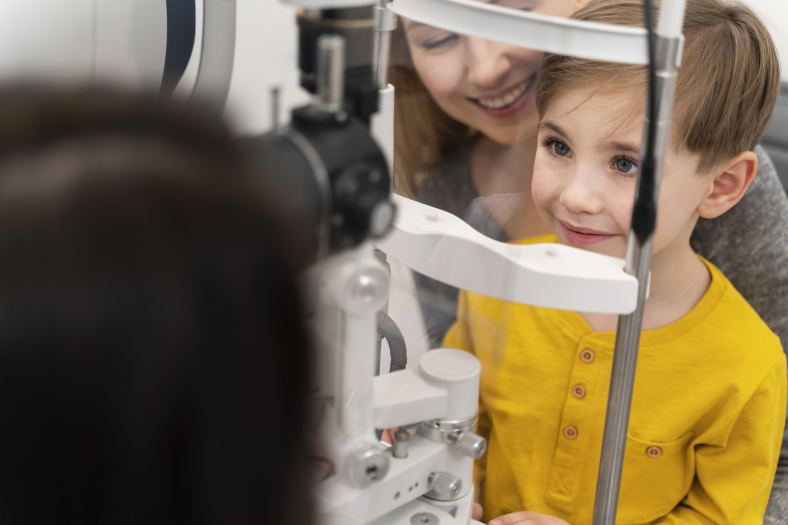As a parent, you want to ensure the best possible health and well-being for your child, and that includes their eyesight. Children’s eyes are still developing, making it crucial to have regular eye exams to detect and address any vision problems early on. This is where pediatric ophthalmologists play a vital role.
What is a Pediatric Ophthalmologist?
A pediatric ophthalmologist is a medical doctor who specializes in the diagnosis, treatment, and prevention of eye diseases in children. They have completed additional training beyond medical school to focus on the unique anatomy and physiology of children’s eyes.
Why are Pediatric Ophthalmologists Important?
Regular eye exams by a pediatric ophthalmologist are essential for several reasons:
- Early Detection of Vision Problems: Many vision problems, such as nearsightedness, farsightedness, astigmatism, and lazy eye (amblyopia), can be detected and treated early on, improving a child’s chances of developing normal vision.
- Prevention of Eye Diseases: Pediatric ophthalmologists can identify risk factors for eye diseases, such as retinoblastoma (a rare eye cancer) and cataracts, and provide preventive care.
- Monitoring Eye Development: Pediatric ophthalmologists can monitor the development of a child’s eyes to ensure they are growing and functioning properly.
- Addressing Eye-Related Learning Challenges: Vision problems can interfere with a child’s ability to learn and read. Pediatric ophthalmologists can assess a child’s vision and provide recommendations for glasses, contact lenses, or vision therapy.
Signs that your child may need an eye exam:
- Frequent eye rubbing or squinting
- Difficulty seeing objects at a distance or up close
- Headaches or eye pain
- Sensitivity to light
- Eyes that are red, watery, or have excessive discharge
When to Schedule a Pediatric Eye Exam
The American Academy of Ophthalmology (AAO) recommends that all children have an eye exam at six months, three years, and before starting school. Children at higher risk for vision problems, such as those with a family history of eye diseases or developmental delays, may need more frequent exams.
What to Expect at a Pediatric Eye Exam
A pediatric eye exam is typically similar to an adult eye exam but with some modifications to make it more child-friendly. The ophthalmologist will ask about your child’s medical history, family history, and any vision concerns you may have. They will then perform various tests to assess your child’s vision, eye health, and eye coordination.
How can I help my child develop good eye care habits?
You can help your child develop good eye care habits by:
- Encouraging them to take breaks from screen time
- Providing them with adequate lighting for reading and other activities
- Ensuring they wear protective eyewear when playing sports or engaging in activities that could injure their eyes
- Modeling good eye care habits yourself
Protect your child’s precious vision by scheduling regular eye exams with a pediatric ophthalmologist. Early detection and treatment of vision problems can make a significant difference in your child’s life.
Pediatric Ophthalmologists: Caring for Your Child’s Vision
Pediatric ophthalmologists are dedicated to providing comprehensive and compassionate eye care for children. They understand the importance of early detection and intervention for vision problems and are committed to helping children achieve their full visual potential.
Schedule an eye exam for your child today and protect their precious vision for a brighter future.


